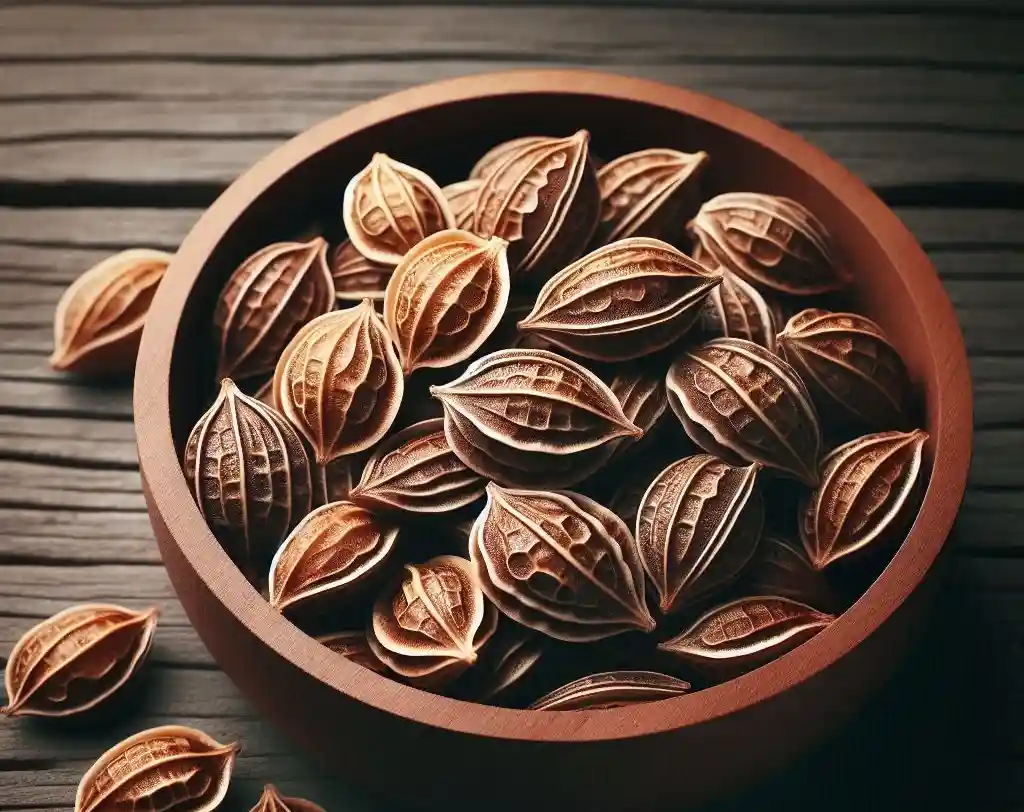How to Eat Moringa Seeds: A Simple and Effective Guide
Moringa seeds are a nutritional powerhouse, packed with vitamins, minerals, and antioxidants that can provide a range of health benefits.
As a superfood, moringa seeds have been used for centuries in traditional medicine to boost energy, support heart health, and even aid in weight loss.
How to Eat Moringa Seeds: A Quick Overview
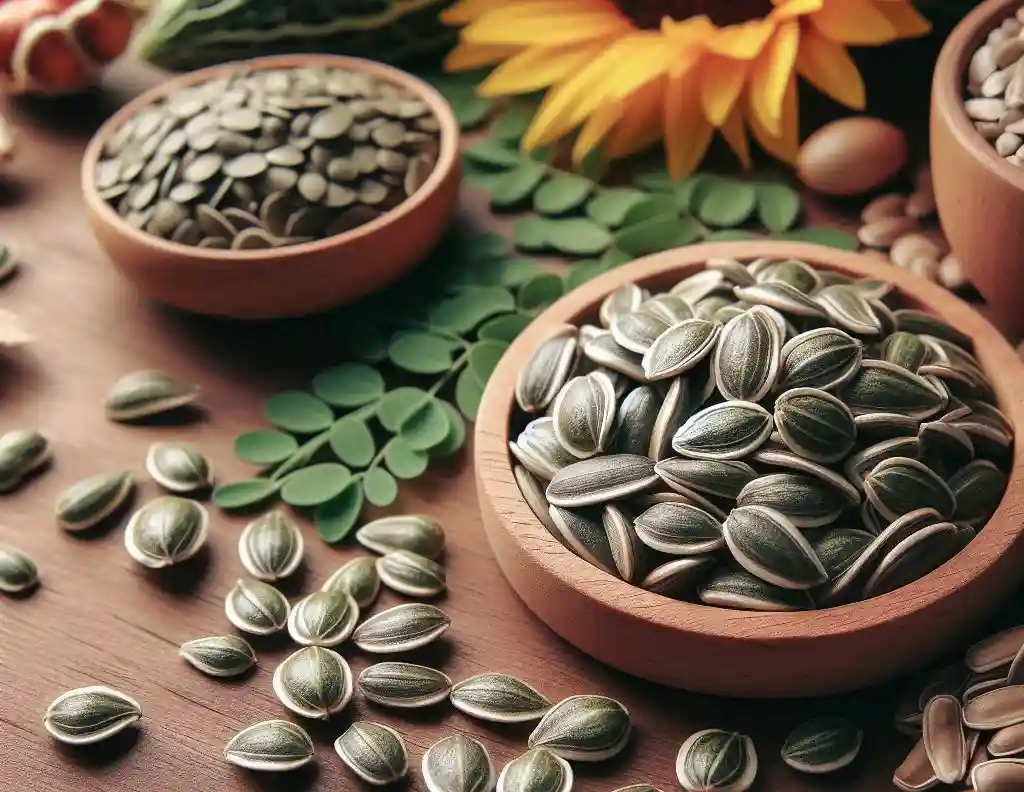
- Roasting: Roasting moringa seeds brings out their natural flavor and aroma, making them a tasty snack on their own or added to salads, soups, and stir-fries. Simply spread the seeds on a baking sheet and roast in a 350°F oven for 10-15 minutes, or until fragrant and lightly browned.
- Sprouting: Sprouting moringa seeds increases their nutritional value and makes them easier to digest. Simply soak the seeds in water for 24 hours, then drain and rinse them daily until they sprout. Add the sprouts to salads, sandwiches, or use as a topping for soups and salads.
- Adding to Recipes: Moringa seeds can be added to a variety of recipes, including smoothies, energy balls, and baked goods. They can also be used as a topping for oatmeal, yogurt, or ice cream.
- Making Tea: Moringa seeds can be used to make a nutritious tea that’s rich in antioxidants and flavonoids. Simply steep 1-2 teaspoons of moringa seeds in a cup of hot water for 5-7 minutes, then strain and enjoy.
- Using in Indian-Style Dishes: Moringa seeds are commonly used in Indian cuisine, particularly in curries and stews. They can be added whole or ground into a spice blend to add flavor and nutrition to your favorite dishes.
- Taking as a Supplement: Moringa seeds can also be taken as a dietary supplement in capsule or powder form. This is a convenient way to reap the nutritional benefits of moringa seeds, especially for those who don’t like the taste or texture.
Unlocking the Power of Moringa Seeds: What You Need to Know
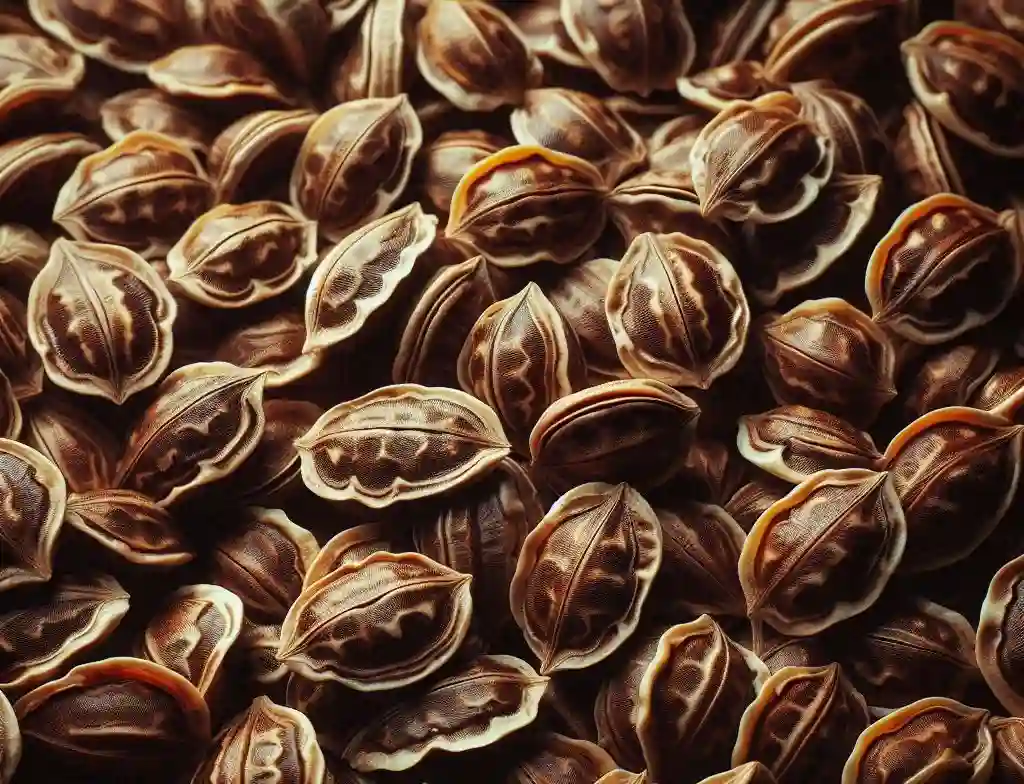
Nutritional Value:
- Rich in protein, fiber, and healthy fats
- Excellent source of vitamins A, C, and E, as well as calcium, iron, and potassium
- High in antioxidants, including flavonoids, phenolic acids, and ascorbic acid
- Contains all nine essential amino acids, making it a complete protein source
Potential Health Benefits:
- May help lower cholesterol levels and blood pressure
- Supports heart health by reducing inflammation and improving blood lipid profiles
- May help regulate blood sugar levels and improve insulin sensitivity
- Rich in antioxidants, which can help protect against cell damage and reduce the risk of chronic diseases
- May help reduce inflammation and improve symptoms of arthritis and other inflammatory conditions
Potential Interactions and Contraindications:
- May interact with blood thinners, diabetes medications, and blood pressure medications
- May not be suitable for pregnant or breastfeeding women, as it may stimulate the uterus and cause contractions
- May cause allergic reactions in some individuals, particularly those with tree nut allergies
- May lower blood sugar levels, so individuals with diabetes should monitor their levels closely
Choosing High-Quality Moringa Seeds:
- Look for seeds that are certified organic, non-GMO, and free of pesticides and heavy metals
- Choose seeds that are fresh and have a high germination rate
- Consider purchasing from a reputable supplier that provides third-party testing and certification
Incorporating Moringa Seeds into Your Diet:
- Start with small amounts (1/4 teaspoon) and gradually increase as needed
- Consume moringa seeds with food to reduce the risk of stomach upset
- Consider consulting with a healthcare professional before using moringa seeds, especially if you have a medical condition or are taking medications
Preparing Moringa Seeds for Consumption: A Step-by-Step Guide

Step 1: Sorting and Cleaning
- Sort through the moringa seeds and remove any debris, stones, or broken seeds
- Rinse the seeds with water to remove any dirt or impurities
- Pat the seeds dry with a paper towel to remove excess moisture
Step 2: Soaking
- Soak the moringa seeds in water for at least 8 hours or overnight
- Change the water every 4-6 hours to prevent fermentation
- Soaking helps to reduce phytic acid, a natural compound that can inhibit nutrient absorption
Step 3: Sprouting
- Drain and rinse the soaked seeds
- Place the seeds in a sprouting jar or a clean glass jar with a mesh lid
- Rinse the seeds with water 2-3 times a day to keep them moist and promote sprouting
- Allow the seeds to sprout for 1-3 days, or until they reach 1-2 inches in length
Step 4: Roasting
- Preheat the oven to 350°F (175°C)
- Spread the sprouted moringa seeds in a single layer on a baking sheet
- Roast the seeds for 10-15 minutes, or until fragrant and lightly browned
- Stir the seeds halfway through the roasting time to ensure even roasting
Step 5: Grinding
- Allow the roasted moringa seeds to cool completely
- Grind the seeds into a fine powder using a spice grinder or coffee grinder
- Sift the powder to remove any lumps or large pieces
Step 6: Storage
- Store the ground moringa seeds in an airtight container in the refrigerator
- Use the powder within 1-2 weeks for optimal flavor and nutrition
- Consider freezing the powder for longer storage
Tips and Variations:
- Add moringa seeds to your favorite recipes, such as smoothies, salads, and baked goods
- Use moringa seeds as a topping for oatmeal, yogurt, or ice cream
- Mix moringa seeds with other spices and herbs to create a custom blend
- Experiment with different roasting times and temperatures to find your preferred flavor
The Best Ways to Consume Moringa Seeds: Roasted, Sprouted, or Raw?
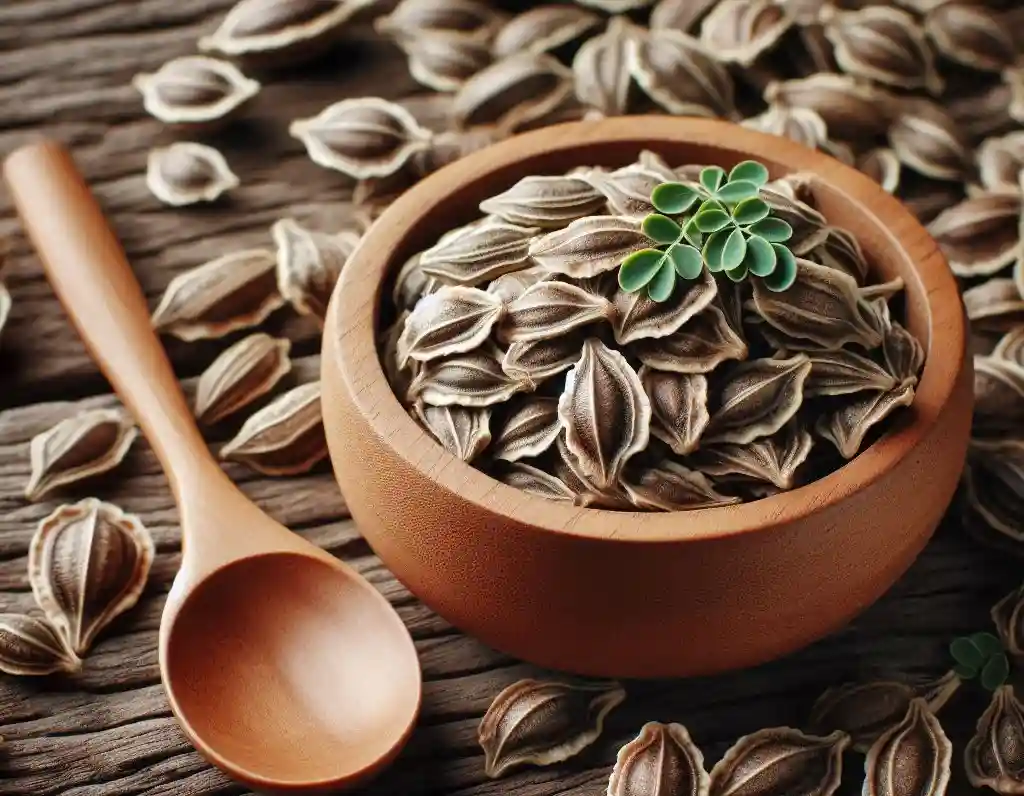
Roasted Moringa Seeds:
- Roasting enhances the flavor and aroma of moringa seeds
- Roasting can increase the bioavailability of nutrients, especially vitamins and minerals
- Roasted moringa seeds can be used as a snack, added to salads, or used as a topping for oatmeal or yogurt
- Roasting can reduce the phytic acid content, making the nutrients more bioavailable
Sprouted Moringa Seeds:
- Sprouting increases the nutritional value of moringa seeds, especially vitamin C and beta-carotene
- Sprouting can reduce the phytic acid content, making the nutrients more bioavailable
- Sprouted moringa seeds can be used in salads, smoothies, or as a topping for oatmeal or yogurt
- Sprouting can increase the enzyme activity, making the nutrients more easily absorbed
Raw Moringa Seeds:
- Raw moringa seeds are high in phytic acid, which can inhibit nutrient absorption
- Raw moringa seeds can be used as a snack or added to salads, but may not be as easily digestible
- Raw moringa seeds can be used as a natural remedy for digestive issues, such as constipation
- Raw moringa seeds can be used as a natural anti-inflammatory and antioxidant
Comparison of Roasted, Sprouted, and Raw Moringa Seeds:
- Roasted moringa seeds have a higher bioavailability of nutrients compared to raw seeds
- Sprouted moringa seeds have a higher nutritional value compared to raw seeds
- Raw moringa seeds have a higher phytic acid content compared to roasted and sprouted seeds
- Roasted and sprouted moringa seeds are easier to digest compared to raw seeds
Tips and Precautions:
- Start with small amounts (1/4 teaspoon) and gradually increase as needed
- Consume moringa seeds with food to reduce the risk of stomach upset
- Consult with a healthcare professional before using moringa seeds, especially if you have a medical condition or are taking medications
- Choose high-quality moringa seeds that are certified organic and non-GMO
Delicious and Healthy Moringa Seed Recipes to Try at Home
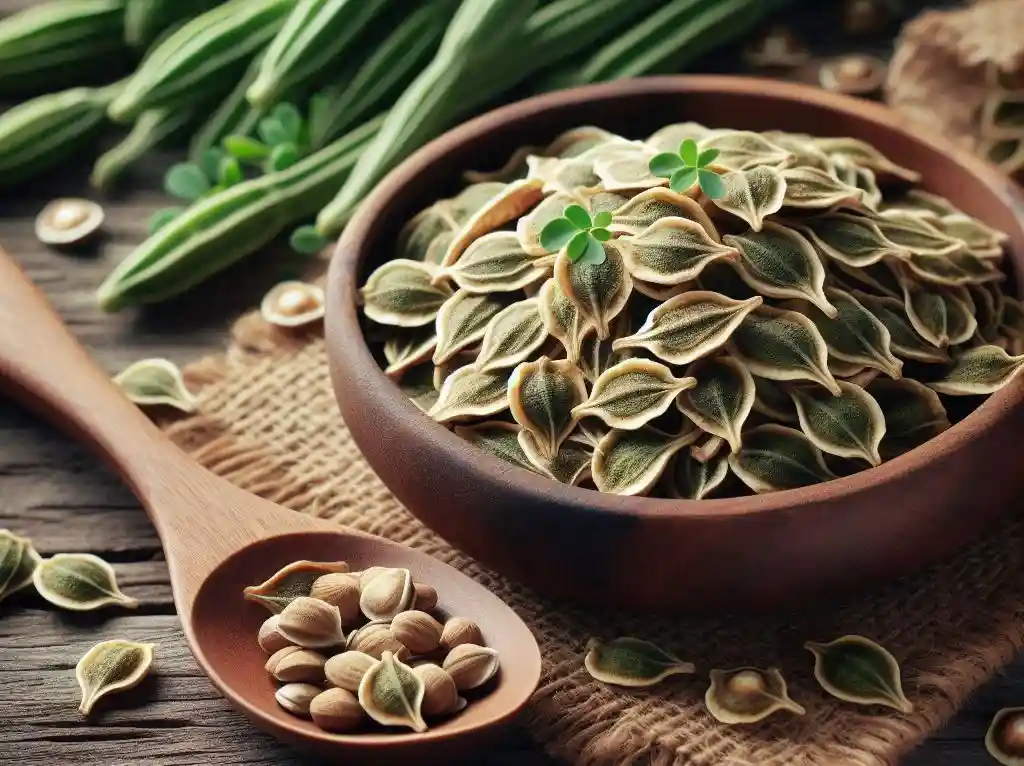
Recipe 1: Moringa Seed Energy Balls
- 1 cup moringa seeds
- 1/2 cup rolled oats
- 1/4 cup honey
- 1/4 cup peanut butter
- 1/4 cup chopped nuts
- Pinch of salt
Mix all ingredients together until a dough forms. Roll into balls and refrigerate for 30 minutes.
Recipe 2: Moringa Seed Smoothie
- 1 cup moringa seeds
- 1 cup frozen berries
- 1/2 cup almond milk
- 1 tablespoon honey
- 1 scoop protein powder (optional)
Blend all ingredients together until smooth.
Recipe 3: Moringa Seed Salad
- 1 cup moringa seeds
- 2 cups mixed greens
- 1 cup cherry tomatoes
- 1/2 cup crumbled feta cheese
- 1/4 cup chopped walnuts
- 1 tablespoon olive oil
- 1 tablespoon lemon juice
Mix all ingredients together and serve.
Recipe 4: Moringa Seed Granola
- 1 cup moringa seeds
- 2 cups rolled oats
- 1/2 cup chopped nuts
- 1/4 cup honey
- 1/4 cup brown sugar
- 1/4 cup coconut oil
- Pinch of salt
Mix all ingredients together until well combined. Bake in the oven at 300°F for 20-25 minutes, stirring occasionally.
Recipe 5: Moringa Seed Tea
- 1 cup moringa seeds
- 1 cup water
- Honey or lemon to taste
Steep moringa seeds in water for 5-7 minutes. Strain and add honey or lemon to taste.
Tips and Variations:
- Start with small amounts (1/4 teaspoon) and gradually increase as needed
- Consume moringa seeds with food to reduce the risk of stomach upset
- Experiment with different spices and herbs to add flavor to your recipes
- Use moringa seeds as a topping for oatmeal, yogurt, or ice cream
- Add moringa seeds to your favorite recipes, such as muffins, bread, or energy bars
The Nutritional Value of Moringa Seeds: What You Need to Know
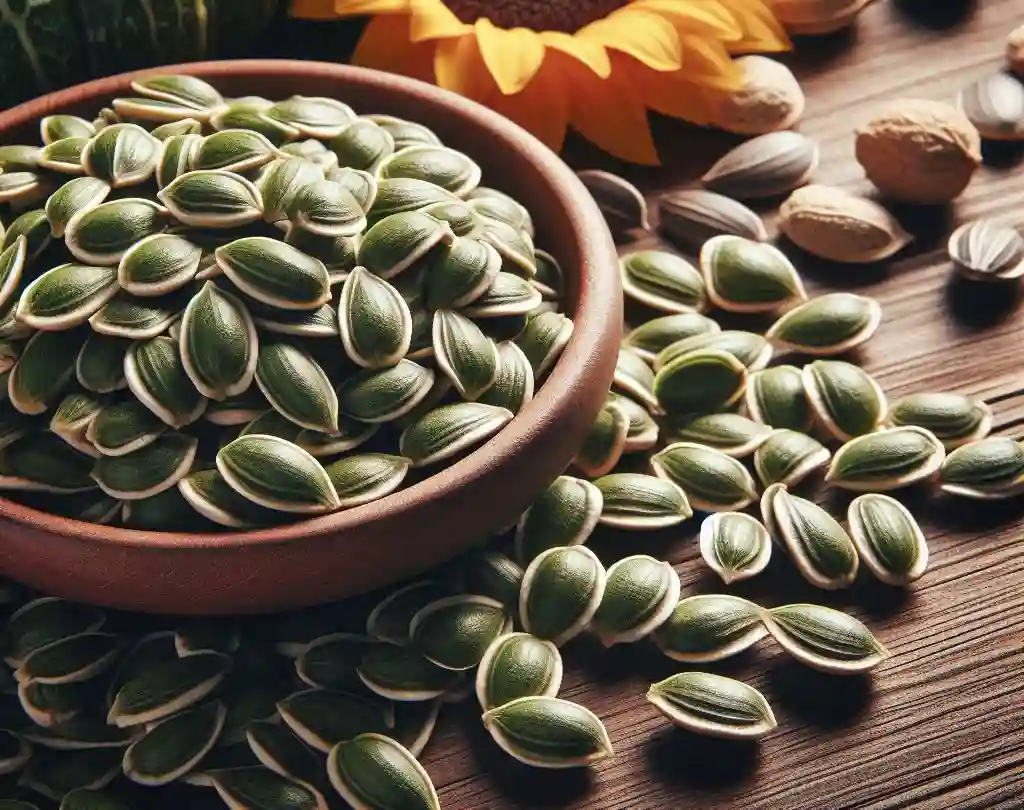
Macronutrients:
- Protein: 27-30%
- Fat: 30-35%
- Carbohydrates: 25-30%
- Fiber: 10-15%
Micronutrients:
- Vitamin A: 10-15% of the Daily Value (DV)
- Vitamin C: 20-25% of the DV
- Calcium: 10-15% of the DV
- Iron: 15-20% of the DV
- Potassium: 20-25% of the DV
- Magnesium: 15-20% of the DV
- Zinc: 10-15% of the DV
Antioxidants:
- Flavonoids: 10-15% of the DV
- Phenolic acids: 15-20% of the DV
- Ascorbic acid: 20-25% of the DV
Other Nutrients:
- Omega-3 fatty acids: 10-15% of the DV
- Omega-6 fatty acids: 15-20% of the DV
- Phosphorus: 10-15% of the DV
- Manganese: 10-15% of the DV
- Copper: 10-15% of the DV
Health Benefits:
- Supports heart health by reducing inflammation and improving lipid profiles
- May help regulate blood sugar levels and improve insulin sensitivity
- Supports digestive health by promoting the growth of beneficial gut bacteria
- May help reduce the risk of certain cancers, such as colon and breast cancer
- Supports immune function and reduces the risk of infections
Tips and Precautions:
- Start with small amounts (1/4 teaspoon) and gradually increase as needed
- Consume moringa seeds with food to reduce the risk of stomach upset
- Consult with a healthcare professional before using moringa seeds, especially if you have a medical condition or are taking medications
- Choose high-quality moringa seeds that are certified organic and non-GMO
Incorporating Moringa Seeds into Your Daily Diet for Maximum Benefits

Breakfast Ideas:
- Add moringa seeds to your oatmeal or yogurt for a nutritious breakfast
- Mix moringa seeds with honey and almond milk for a healthy smoothie
- Sprinkle moringa seeds on top of your breakfast cereal or toast
Lunch and Snack Ideas:
- Add moringa seeds to your salads or sandwiches for a nutritional boost
- Mix moringa seeds with hummus or guacamole for a healthy snack
- Sprinkle moringa seeds on top of your soups or stews for added nutrition
Dinner Ideas:
- Add moringa seeds to your stir-fries or curries for a nutritional boost
- Mix moringa seeds with olive oil and lemon juice for a healthy salad dressing
- Sprinkle moringa seeds on top of your roasted vegetables or meats for added nutrition
Beverage Ideas:
- Mix moringa seeds with water or tea for a healthy and refreshing beverage
- Add moringa seeds to your smoothies or juices for a nutritional boost
- Make a moringa seed tea by steeping the seeds in hot water for 5-7 minutes
Tips and Precautions:
- Start with small amounts (1/4 teaspoon) and gradually increase as needed
- Consume moringa seeds with food to reduce the risk of stomach upset
- Consult with a healthcare professional before using moringa seeds, especially if you have a medical condition or are taking medications
- Choose high-quality moringa seeds that are certified organic and non-GMO
Maximum Benefits:
- Supports heart health by reducing inflammation and improving lipid profiles
- May help regulate blood sugar levels and improve insulin sensitivity
- Supports digestive health by promoting the growth of beneficial gut bacteria
- May help reduce the risk of certain cancers, such as colon and breast cancer
- Supports immune function and reduces the risk of infections
Important Considerations When Eating Moringa Seeds: What to Watch Out For
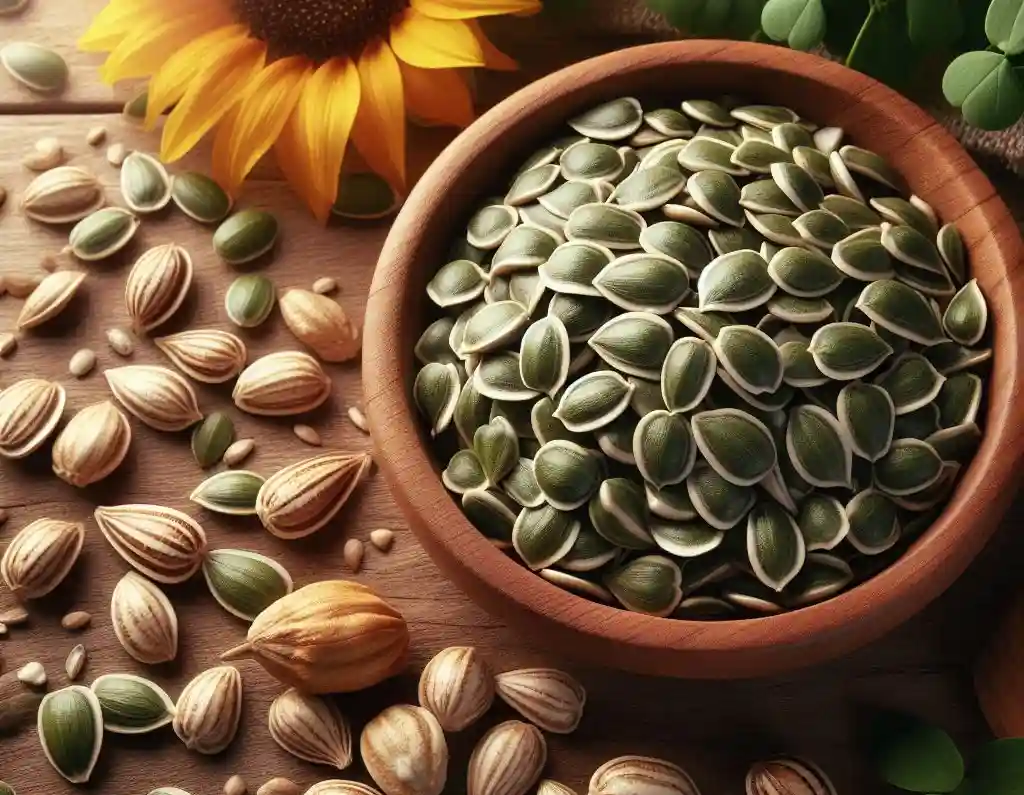
Interactions with Medications:
- Blood thinners: Moringa seeds may increase the risk of bleeding when taken with blood thinners such as warfarin or aspirin.
- Diabetes medications: Moringa seeds may lower blood sugar levels, which can interact with diabetes medications.
- Blood pressure medications: Moringa seeds may lower blood pressure, which can interact with blood pressure medications.
Side Effects:
- Stomach upset: Moringa seeds can cause stomach upset, nausea, and diarrhea in some individuals.
- Allergic reactions: Some people may be allergic to moringa seeds, which can cause symptoms such as hives, itching, and difficulty breathing.
- Interference with iron absorption: Moringa seeds contain phytic acid, which can interfere with iron absorption.
Special Populations:
- Pregnant or breastfeeding women: Moringa seeds may stimulate the uterus and cause contractions, which can be harmful during pregnancy.
- Children: Moringa seeds may not be suitable for children due to their high fiber and protein content.
- Elderly individuals: Moringa seeds may interact with certain medications and exacerbate underlying health conditions.
Quality and Safety:
- Contamination: Moringa seeds can be contaminated with heavy metals, pesticides, or other toxins.
- Allergens: Moringa seeds may be processed in facilities that also process common allergens such as nuts, gluten, or soy.
Precautions:
- Start with small amounts: Begin with a small amount (1/4 teaspoon) and gradually increase as needed.
- Consult a healthcare professional: If you have a medical condition, are taking medications, or are pregnant or breastfeeding, consult a healthcare professional before consuming moringa seeds.
- Choose high-quality sources: Select moringa seeds from reputable sources that are certified organic and non-GMO.
Getting Started with Moringa Seeds: Tips and Precautions for Beginners
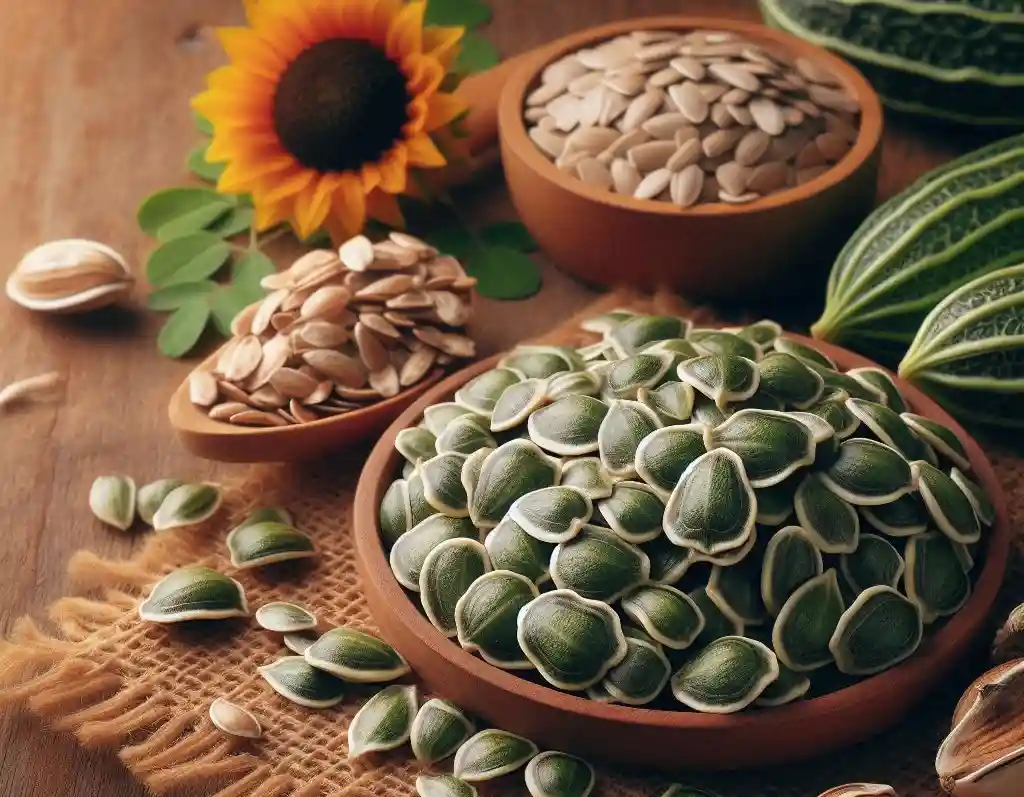
Tips for Beginners:
- Start small: Begin with a small amount (1/4 teaspoon) and gradually increase as needed to allow your body to adjust.
- Choose high-quality seeds: Select moringa seeds from reputable sources that are certified organic and non-GMO.
- Store properly: Store moringa seeds in an airtight container in a cool, dry place to preserve their nutritional value.
- Consume with food: Take moringa seeds with food to reduce the risk of stomach upset and improve absorption.
- Stay hydrated: Drink plenty of water when consuming moringa seeds to help with digestion and absorption.
Precautions for Beginners:
- Allergic reactions: Be cautious of allergic reactions, such as hives, itching, or difficulty breathing. If you experience any symptoms, discontinue use.
- Interactions with medications: Consult a healthcare professional before consuming moringa seeds, especially if you’re taking medications or have underlying health conditions.
- Pregnancy and breastfeeding: Avoid consuming moringa seeds during pregnancy or breastfeeding, as they may stimulate the uterus and cause contractions.
- Digestive issues: If you experience stomach upset, diarrhea, or nausea, reduce the amount or discontinue use.
- Quality control: Be cautious of contaminated or low-quality moringa seeds that may cause adverse effects.
Additional Tips:
- Roast or sprout: Roasting or sprouting moringa seeds can enhance their nutritional value and bioavailability.
- Combine with other foods: Mix moringa seeds with other nutrient-dense foods, such as fruits, nuts, or seeds, to create a balanced snack or meal.
- Monitor your body: Pay attention to how your body responds to moringa seeds and adjust your consumption accordingly.
FAQs
Q: What are moringa seeds?
A: Moringa seeds are the seeds of the moringa tree (Moringa oleifera), a plant native to India and Southeast Asia. They are rich in nutrients and have been used for centuries in traditional medicine.
Q: What are the health benefits of moringa seeds?
A: Moringa seeds are rich in antioxidants, vitamins, and minerals, and have been shown to have numerous health benefits, including reducing inflammation, improving heart health, and supporting digestive health.
Q: How do I consume moringa seeds?
A: Moringa seeds can be consumed in various ways, including roasting, sprouting, or grinding them into a powder. They can also be added to smoothies, salads, or used as a topping for oatmeal or yogurt.
Q: Are moringa seeds safe to eat?
A: Yes, moringa seeds are generally considered safe to eat. However, it’s essential to choose high-quality seeds from reputable sources and follow proper storage and preparation methods to minimize the risk of contamination or allergic reactions.
Q: Can I take moringa seeds if I have a medical condition?
A: It’s essential to consult with a healthcare professional before consuming moringa seeds, especially if you have a medical condition or are taking medications. Moringa seeds may interact with certain medications or exacerbate underlying health conditions.
Q: How do I store moringa seeds?
A: Store moringa seeds in an airtight container in a cool, dry place to preserve their nutritional value and prevent contamination.
Q: Can I grow my own moringa tree?
A: Yes, you can grow your own moringa tree! Moringa trees are relatively easy to grow and can thrive in a variety of environments. You can purchase moringa seeds online or at a local nursery.
Q: Are moringa seeds expensive?
A: The cost of moringa seeds can vary depending on the quality, quantity, and source. However, high-quality moringa seeds from reputable sources can be relatively affordable.
Q: Can I use moringa seeds for medicinal purposes?
A: While moringa seeds have been used in traditional medicine for centuries, it’s essential to consult with a healthcare professional before using them for medicinal purposes. Moringa seeds may interact with certain medications or exacerbate underlying health conditions.

Amelia Winthrop is the creative force behind Skillful Cooking, a blog that serves as a canvas for her culinary creations. With a philosophy that cooking should be accessible and enjoyable, Amelia crafts recipes that blend simplicity with sophistication. Her intuitive approach to the kitchen encourages others to embrace the joy of cooking and the pleasure of sharing meals with loved ones.

